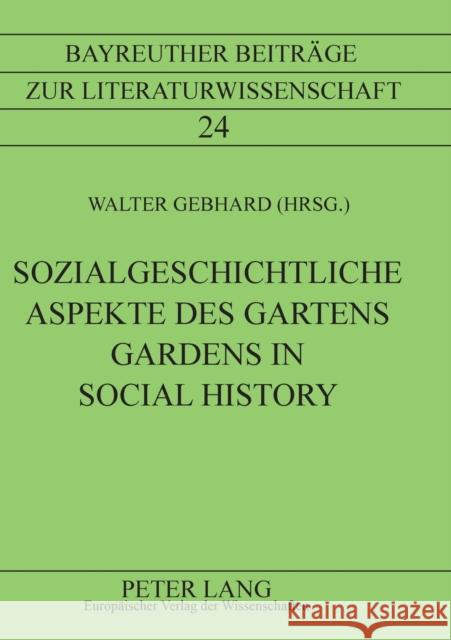Sozialgeschichtliche Aspekte Des Gartens- Gardens in Social History: Gardens in Social History » książka
Sozialgeschichtliche Aspekte Des Gartens- Gardens in Social History: Gardens in Social History
ISBN-13: 9783631359211 / Angielski / Miękka / 2002 / 252 str.
Im Blick so unterschiedlicher Disziplinen, wie der Mentalitats-, Literatur- und Kunstgeschichte, der Kolonialhistorie, wie der Forschung zur interkulturellen Rezeption Japans, der Sozialreformgeschichte und der vergleichenden Rechtskasuistik, erscheint der Garten als hochste variable Resultante sozial und ideologisch bestimmter Begegnung zwischen Natur und Mensch. Diverse Selektionsimpulse zeigen dabei zwischen Antike, mittelalterlichem Europa, feudalem Reprasentationskult in Japan wie im Barock, aber auch in dessen Uberwindung in der Spataufklarung bis zum Schreber- und Hotelgarten, wie Gartenkultur beitragt zur anthropologischen Symbolik auch in Gedicht und Roman. Ihre Beziehungs- und Blickperspektiven trugen dem Kolonialismus des 19. Jahrhunderts die Selbstillusion ein, kolonisierte Regionen als Domestikationsraume fur -die Wilden- zu verstehen.
A variety of research like history of mentality, literature, architecture, and colonialism, research on the reception of Japan, social history, and comparative jurisprudence contributes to understanding the garden as a result of the social and ideological meeting of nature and men. Cultivation of gardens builds up an anthropological symbolism from antique to modern times as in feudal representations in Japan and European Baroque and its overcoming during the enlightenment and the times of social reforms, including novels and poems. Colonialism of the 19th century had the illusory opinion that colonisation by gardens would bring high cultural civilisation to regions of savagery."











